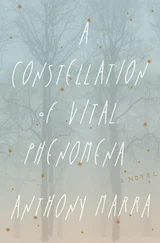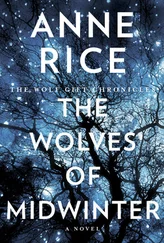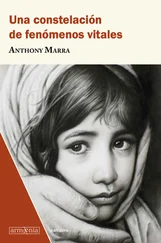“We’re on our way out,” Sergey told Vera. He did not look at Lidiya. He no longer stayed after work, no longer spent his evenings with Vera, now that Lidiya had returned. The kitchen table had only two chairs.
The men left, and Lidiya pulled the half-liter bottle from her jacket. She finished it before the snow had melted from her boots. Vera watched from the kitchen table. She couldn’t account for her daughter’s misery. Lidiya had grown up in the party. She had spent her childhood in the thaw of Khrushchev, her adolescence in the placid years of Brezhnev. She had never felt hunger. Vera was careful to keep all evidence of the betrayal from her daughter. When Lidiya, at six years of age, asked how her grandmother died, Vera simply said she was a casualty of the times, a euphemism ascribed to those taken in the purges. Of course Lidiya knew, but they never spoke of it. Vera had done her best to instill in Lidiya a sense of morality that existed beyond the reach of the state, even as she emphasized the importance of obedience to that state. She taught her to chew with her mouth closed. She taught her to look both ways before crossing the street and never to talk with strange men. She taught her to pray and never to speak of this or anything that contradicted the party line. This is what she had done, and it had not been enough.
Lidiya left and returned three hours later with two half-liter bottles. One was full, the other empty. She mumbled about heroin, about leaving America to live with criminals and peasants.
“You must not say these things,” Vera said, but Lidiya would not listen.
The next week, the men did not show up. Vera glanced at her daughter, stretched out on the divan and facing the television that Sergey had left. Her face was bloated, her eyes red. Lidiya reminded Vera of her own mother, who before the war would drink beet samogon until she could not stand. The same glossy eyes, the same small hands. Vera paced the kitchen before settling at the cutting board, unable to quiet her head. Sergey and his associates had never been late before. She peeled potatoes, waiting just over three hours before going to Yelena’s house. At two in the afternoon, the sun was already setting.
Yelena nodded when she saw Vera at the door, as if she had been expecting her. She had. Two teacups sat on the coffee table, and the samovar was still warm in the kitchen.
Vera sat on the leather sofa, which Yelena never failed to mention came from Italy. Several furs hung from the coatrack. A pack of Benson & Hedges lay beside a silver ashtray.
“Sugar?” Yelena offered.
“The men haven’t arrived,” Vera said.
Yelena nodded and stirred three scoops of sugar into both cups of tea. She had a child to be proud of.
“It’s over,” she said. “Ivan called last night. He said the arrangement has ended.”
“But why?” Vera asked.
“Your daughter is indiscreet. She has been talking in town.”
Without asking, Vera reached across the table and took one of the cigarettes. This was why the wolves had returned. For her own daughter’s denunciation. For her. She drew on the cigarette, and the ember glowed with the inhalation. She imagined her body stretched out on the ground of Bilaya. Frozen fingers and blue shoulders. Skin that no man had touched since before perestroika. She knocked the ashes from the ember and looked at her hands. She couldn’t be legitimately faulted, much less punished. She had to pay the gas and the grocery bills, and at times, survival conflicted with the law. Wasn’t that obvious? Didn’t the state understand? This was her only life, and she did not want it to end.
“What will happen to me?” Prison, she thought, was the best possible outcome. But she expected something much worse. “Will I be arrested?”
The police have nothing to do with it , Yelena thought. She watched her old friend’s hands tremble. No, friend wasn’t the right word, but neither was enemy . She recalled how in school their teacher had applauded Vera for her courage, her self-sacrifice in the name of the people. How even during the famine of 1947, when Yelena’s sister died from malnutrition, Vera always had enough to eat. As she rubbed her hand across the leather sofa, Yelena knew that this was a just and righteous world, where one always received what one had earned.
“What will happen to me?” Vera asked again.
Yelena shook her head. “You? Nothing will happen to you.”
When Vera returned home, the front door was unlocked. An uncapped half-liter bottle sat on the coffee table, three fingers from full. A wide trail of footprints began at the back door, stretching like a perforated line across the snowy field to Bilaya Forest. Her knees ached as she followed the trail toward the trees. She did not stop to count the sets of footprints. She knew that one of them belonged to her daughter.
The moon was a sliver of pale light cut into the sky. Snow soaked into the lining of her boots, and wolves howled from the trees. She followed the footprints across the field, to the edge of the forest. When she was a child, when they had nothing to eat, she went into the forest with her mother. They hunted rabbits and birds with a slingshot, and they heard the howls. Their hunger, however, outweighed their fear. They never came across the wolves, only the carcasses of their prey.
In the shadows and undergrowth, she lost the trail. She found pinecones and animal droppings and snow, but no footprints. She turned around, and the tree trunks were long and emaciated, and they were frozen. She called her daughter’s name once and twice and again and again. She would never know that 45 minutes earlier and 50 meters away, her daughter had looked at the sky. Even through her confusion and fear, the trees of Bilaya Forest reminded Lidiya of Oregon, of the hike she went on with Gilbert the week after arriving in America, when she still could not speak English, when she still could not believe her luck. Two men walked in front of her, two behind. She did what they said. She was not wearing shoes, and her feet felt like two wooden blocks attached to her ankles. A hole appeared, an oval missing from the earth. Two shovels stood in the dirt. She fell to her knees and wept. Moonlight fell indifferently. The ground was hard and covered in snow, and she was afraid of it. She pleaded with Sergey, apologizing for her indiscretion. The men raised their guns and in the flashes was no thought, no final reflection, just the breath carried from her body on the back of a bullet.
No funeral was held, no body found to consecrate, but Vera still went to church. She repeated the prayers she had learned long ago, understanding for the first time why her mother had made her memorize them in spite of the political dangers. She stood at the front of the church, beside an icon of the Virgin and child. The great, golden God was helpless in his mother’s arms. Though she held him across her chest, the Virgin looked outward rather than at her child. How strange , Vera thought, not for the first time, that a mother can hold in her arms the savior of the world yet be unable to give the child her undivided attention. But this is what a mother is . She prayed for the blessing of the Virgin Mother and the Holy Ghost, the entreaties of every angel in heaven. Though she knew that faith could not exist without hope, she still prayed.
On her way home, she passed a young woman holding a clipboard. She had seen the young woman before, soliciting the signatures of pedestrians. The young woman’s eyes were clear. They still had years to witness. When asked if she had a moment to spare, Vera could not deny her.
“Would you sign this?” the young woman asked, and handed her the clipboard. “We are petitioning the Duma to turn Bilaya Forest into a nature preserve.”
Читать дальше












